Reviews
Billy Wilder
USA, 1945
Credits
Review by Victoria Large
Posted on 07 March 2011
Source Universal DVD
Categories Brackett & Wilder
When approaching The Lost Weekend, one of the best-known collaborations between director Billy Wilder and screenwriter Charles Brackett, today, there is no question about the film’s historical importance. It remains notable because it was not only out of step with the candy floss cheerfulness of the blockbusters of the day (1945 was the year of Anchors Aweigh, after all), but also grittier but familiar forties fare like film noir. Noir may have shown the nastier side of human nature, but by focusing on the absolute nastiest side of human nature—deception, theft, murder—it also conjured something of a fantasy world for its viewers, disturbing but well outside their lived experience. On the other hand, The Lost Weekend’s harrowing portrayal of alcoholism was realistic and close to the bone.
And more remarkably still, the film was embraced, scoring Oscar wins for Brackett and Wilder, as well as star Ray Milland. It even took home the Best Picture trophy, signaling the possibility for popular and critical success for a story that dealt bluntly with the ugliness of addiction. (To wit, 1947 would see the release of Smash-Up: The Story of a Woman, a similarly desperate tale starring Susan Hayward.) Indeed, the real question about The Lost Weekend today is whether it holds up in an era where we’re accustomed to movies that are bleak and blunt. It’s easy for this sort of material to sink into melodrama, after all.
Happily for us, the m-word is rarely applicable to the film, if at all. Watching The Lost Weekend today remains a stunning experience because the film is horrific and human in the right measures, never reaching the hysterical, exploitative pitch of lesser films about addiction, but never losing sight of the seriousness of its subject.
Wilder frequently employs the grammar of horror films here. The soundtrack is dominated by frightening music (my roommate deemed it appropriate for a malevolent alien invasion), and two sequences depicting the delirium tremens are truly terrifying: one takes place in a shadowy detox ward, where Milland’s character Don Birnam watches strangers twist and shriek; the other sees Don tortured by hallucinations in his own apartment (despite the presence of a hokey faux bat, the sight of a trickle of blood making its way down Don’s wall in this sequence remains chilling). Even would-be writer Don’s quest to pawn his typewriter, only to find that every pawnshop in New York is closed, seethes with a kind of terrible nightmare logic (We eventually find out that the shops are closed for Yom Kippur). The approach works; The Lost Weekend’s most explicitly “horrific” moments are also among its most memorable and effective.
But amid the horror, the screenplay and the performances also make way for needed levity. A woman on the street cheerfully calls Don “the nice young man who drinks,” and Don’s acid-edged report on the disappointing contents of his apartment’s fridge (“We have quite a supply of milk”) merits a dry, appreciative laugh. Some of the film’s best moments tread the line between the brutally funny and the brutally sad: think of the bartender at Don’s favorite watering hole suggesting he “lay off the stuff for a while” as he simultaneously pours Don another; or character actor Frank Faylen’s slightly camp male nurse Bim hissing menacingly to Don about the visions of “little animals” that accompany the DTs.
Also, pivotally, The Lost Weekend captures the highs as well as the lows of Don’s addiction, something that much later films like Drugstore Cowboy and Trainspotting would be praised for. Milland’s face lights up when he explains his love affair with the drink, and how, when he’s drunk enough, he’s suddenly William Shakespeare, and the world is beautiful, and he’s a success. When Don settles in next to a freshly poured glass of booze, we witness his mad look of pleasure, and Wilder’s camera literally plunges into the depths of the glass.
Don’s need to take shelter in booze when confronted with life’s mundane terrors: meeting his girlfriend’s parents, for example, is also rendered sadly sympathetic. We sit with him as he overhears his potential in-laws mulling over his suitability for their daughter, his seeming lack of prospects; and we know exactly why he flees. The film also catches the pain on the peripheries of Don’s troubles: Phillip Terry is particularly notable as Don’s loving but exhausted brother Wick, who, at the end of his rope, wishes his brother dead.
More than sixty years on, The Lost Weekend has indeed retained much of the power that it held upon its initial release. It is fair to question whether the film’s cautiously optimistic ending remains appropriate: one could argue that the final moments are a sop to sentimental moviegoers or the profit-wary studio execs. But the ending has a not-entirely-convincing air that actually makes sense: we want to believe that Don will pull himself out of this, but we aren’t entirely sure that he will. And Wilder’s final shot of New York City, framed by Milland’s voiceover asserting that Don’s problem is that of many of other men as well, is disquieting in a way that can’t be overlooked. It is, once again, not unlike the ending of a horror film: the monster is subdued, but we don’t know how long the accord will last. The Lost Weekend is, as ever, a compelling portrait of a common menace, a masterful chronicle of the monstrosity of addiction.
More Brackett & Wilder
-
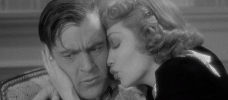
Bluebeard’s Eighth Wife
1938 -
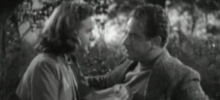
That Certain Age
1938 -

Midnight
1939 -
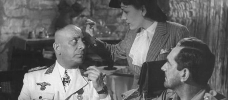
Five Graves to Cairo
1943 -
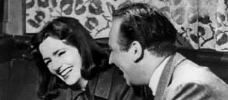
Ninotchka
1939 -
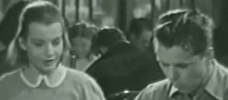
What a Life
1939 -
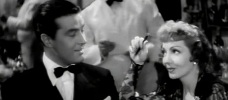
Arise My Love
1940 -
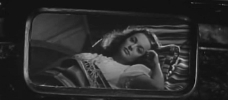
Hold Back the Dawn
1941 -
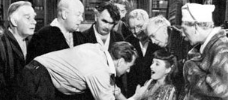
Ball of Fire
1941 -
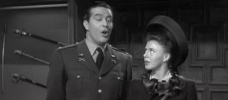
The Major and the Minor
1942 -
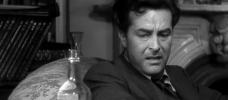
The Lost Weekend
1945 -
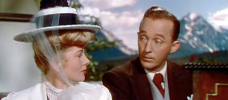
The Emperor Waltz
1948 -
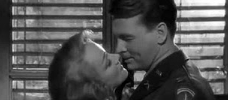
A Foreign Affair
1948 -
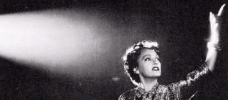
Sunset Boulevard
1950
We don’t do comments anymore, but you may contact us here or find us on Twitter or Facebook.



